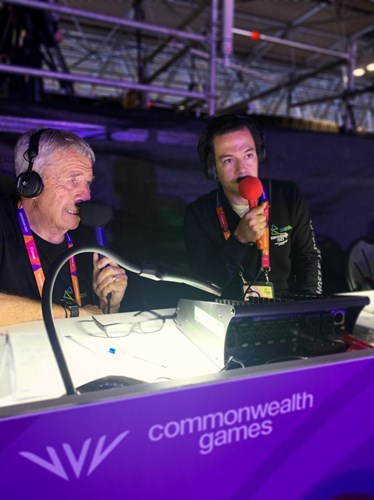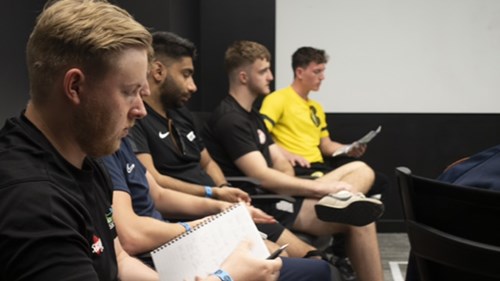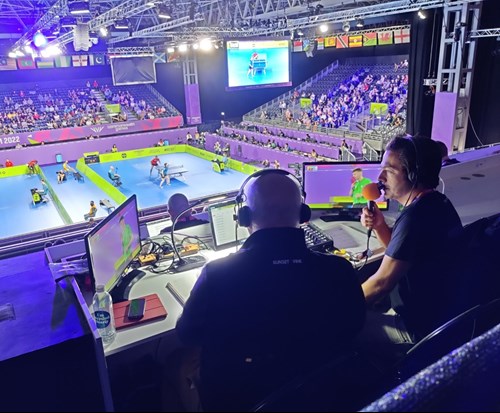What is a sports journalist?

A sports journalist works in the media industry, including print, television, broadcasting and online, in which they research and write about the latest sporting events, players and tensions or controversies in the game.
The beauty, and often the challenge, of sports journalism is the breadth of topics that you’re able to cover – from poignant player reflections, to broader debates surrounding divisive issues, such as VAR, the scope for delving into this diverse and fascinating field, and finding new angles to explore, is endless.
Where do I start?
As soon as you’re able to volunteer, it’s a great idea to gain some experience at your local newspaper outlet and get a sense of the fast-paced, competitive but hugely rewarding world of sports media. This will also enable you to learn more about the sports industry and practice your writing skills – it’s important to experiment with your style of writing and find your unique tone of voice.
It’s also important to consume a great deal of sports journalism in your spare time. Reading a variety of papers, both local and national, will give you an understanding of how they vary in focus, the enormous breadth of perspectives and how different writers choose to express themselves.
What qualifications do I need?

A sports journalism degree is the best route into a career in the industry, and will help tailor your writing style to that of a refined, but relatable, sports journalist. Gaining a degree in the exact field you want to specialise in not only ensures you have the necessary skills and qualifications, but also demonstrates you’ve been committed to this specific sector since day one.
There are no specific sports journalism degree requirements – most courses will let you in with either A-Levels or BTEC qualifications, but studying relevant subjects, such as English, will boost your chances of securing an offer from your first-choice university.
What courses should I take?
There are several sports journalism courses that you can take to help kick-start your career, the primary one being the NCTJ Diploma. This can be taken as part of your undergraduate or postgraduate degree, or separately, as its own fast-track or part-time course.
While a degree is the single most important qualification to gain when starting out in the field, several organisations require employers to also have the NCTJ –particularly in written, as opposed to broadcast journalism.
What experience can I gain?

While you’re studying for your degree in sports journalism, it’s vital that you continue to build your portfolio and gain relevant experience alongside your studies.
Your university lecturers, former professional journalists themselves, may have contacts they can put you in touch with, and UCFB – the world’s first football and sports university – offer internships and work placements to students through their extensive list of industry partners, including the Premier League.
What happens once I'm qualified?
Once you have completed your undergraduate degree, the search is on for a graduate job. Initially, this may be part-time work that develops into a full time-role, or balancing multiple jobs alongside one another. The nature of journalism is scrappy and unpredictable, and there’s no doubt
If, however, you remain consistently hard-working and strive to constantly improve your work, then you have every chance of being successful in one of the most brilliant industries out there – one in which you get paid to watch sport.
As Mya Graham, Assistant Producer at talkSPORT and UCFB alumni, claimed: “They say if you have a job that you love you'll never work a day in your life and I genuinely feel like that.”

















